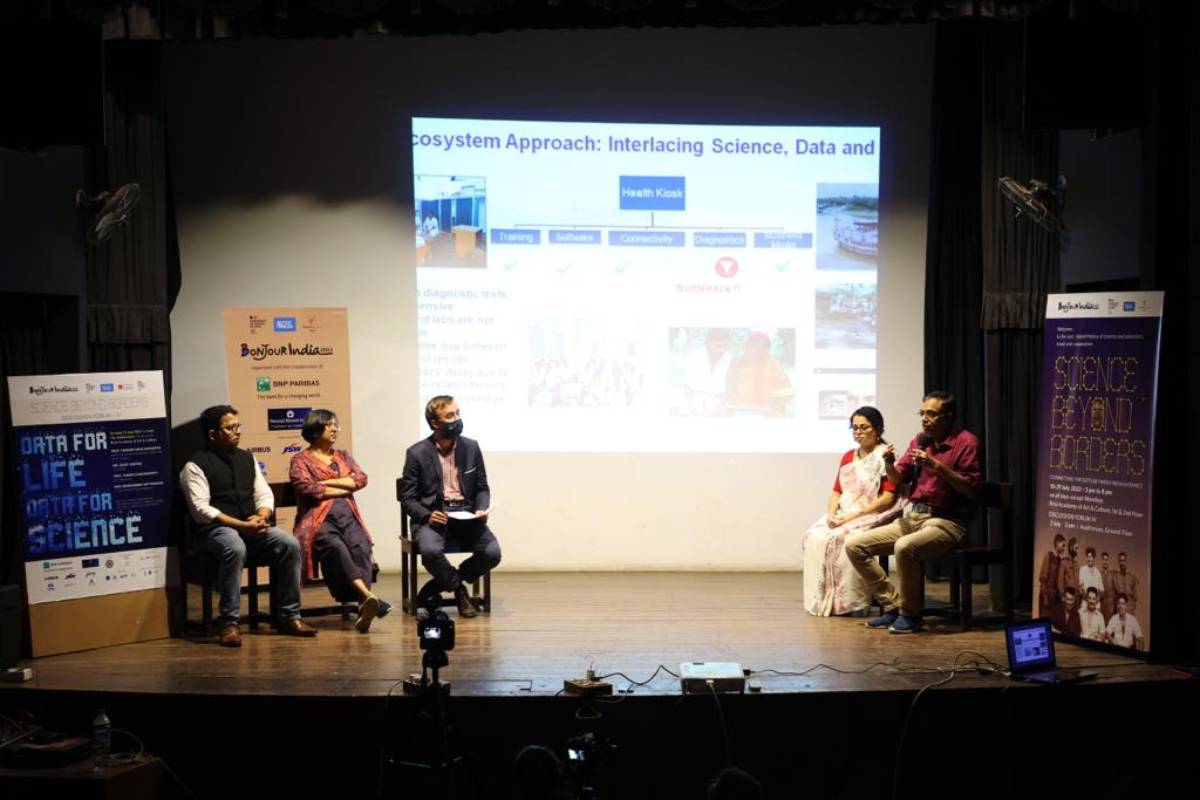The term ‘data science’ often gives one an impression of dealing with complex codes but what if it can substitute COVID nasopharyngeal swab tests with an innovative technique sans the discomfort or, create new materials that substitute costlier and rare ones which are imported.
In a seminar on data science, organised by the Alliance Francaise du Bengale at the Birla Academy of Art and Culture, professor Suman Chakraborty of IIT-Kharagpur, while addressing students, highlighted that data science goes well beyond just “coding” and must find application in solving real-life complexities in society. He felt that it can contribute massively to the health sector if data can be properly combined with technology.
Advertisement
Citing an example, professor Chakraborty said that IIT-Kharagpur developed a method to test for Covid-19 that substitutes the nasal swab method. “Nasal swab process is greatly discomforting, especially difficult for children. Many times Covid home kits show erroneous negative results. The reason could be that a person is unable to properly perform the nasopharyngeal test on themselves, where you need to insert the swab stick deep inside the nose. On the contrary, our method involves collecting samples from gargle water, which can be used on RAT kits to detect infection. This is a much simpler process and can be easily used in cases of children.” He however added that this method needs government nod to become an approved method for COVID detection. The professor said, “Unless we can use data science to make a difference in our society by proving it is useful in solving the problems of ordinary people, there is little use in talking about it.”
Meanwhile, professor Tanusri Saha Dasgupta, director, SN Bose National Centre for Basic Sciences stressed on the application of data science in developing new materials with some targeted or tailored functions. “Data science is all about pattern recognition where new data can be created using a pool of already available data.”
Citing an example, she said that rare materials such as neodymium and samarium are used in making permanent magnets but these often have to be imported from China. “Since these are rare, their costs are also high but we can use machine learning to create new substitutes for these so they can be available at lower costs. Machine learning can revolutionise the process of material creation.”
